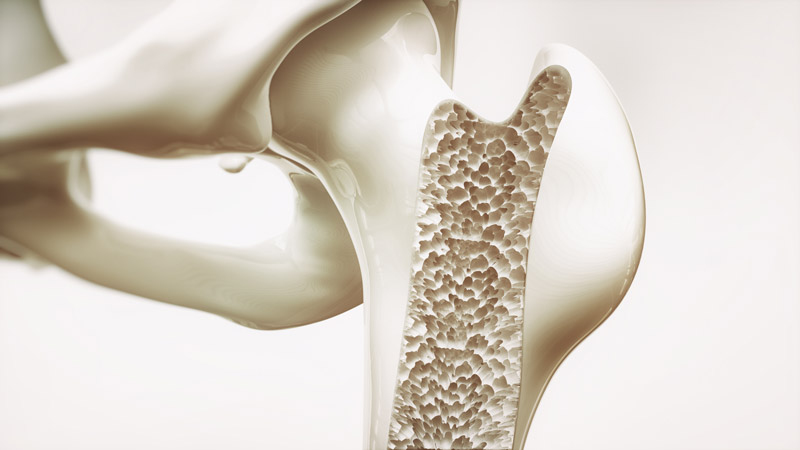
If you regularly take calcium supplements but find your DEXA bone scan results are not improving, the likely culprit is not the number of milligrams you are taking or the source they are derived from. Calcium alone is simply not enough to strengthen bones.
Throughout life, the skeleton constantly undergoes a natural remodeling process which breaks down and regenerates the underlying structure of collagen and minerals that keep bones strong. However, after age 50 and especially after menopause, the body becomes less efficient in absorbing calcium and other nutrients needed to maintain bone density. This deprives the body of the building blocks for healthy bone and slows down the renewal cycle, rendering bones more fragile and brittle with each passing year.
However, a healthy diet and a well-rounded supplement can help provide your body with bone-strengthening minerals and the absorption factors needed to transport them directly to the bones, avoiding the risk of accumulation in soft tissues like the arteries or kidneys.
How Can You Tell a Good Bone Supplement from a Bad One?
Recent studies indicate that more than 50% of women and 1 in 4 men will experience a fragility fracture during their lifetime due to bone density loss. As life expectancies rise and people remain active well into advanced years, these risks continue to increase. Perhaps it is no surprise, then, that public demand for bone support supplements is growing rapidly.
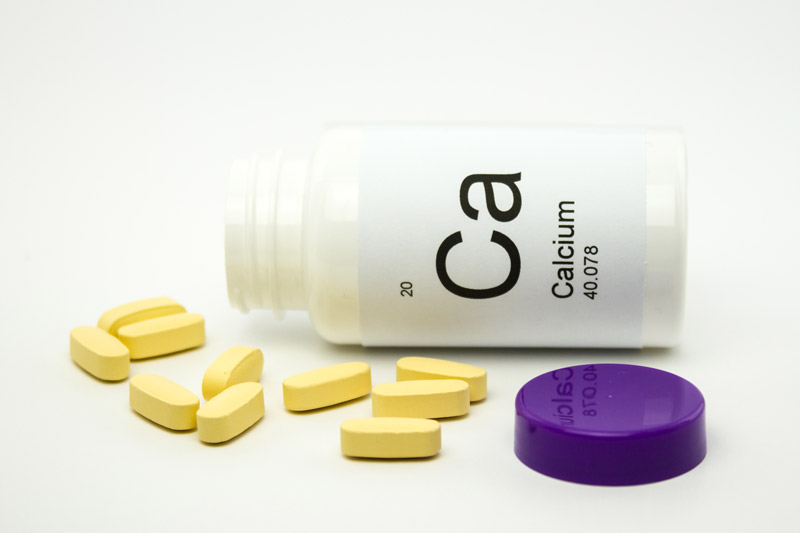
And yet, not all supplements are created equal. The fast-growing market for bone support products has lured many companies to release ineffective supplements containing excessively high doses of calcium without a supporting cast of vitamins and minerals designed to ensure maximum absorption in the bones. That's why our staff decided to review all the most popular bone health formulas today and evaluate them for safety and effectiveness. We will show you what to look for, what to avoid, and which products we determined to be the best.
In our analysis, we noticed a number of companies claiming a wide variety of health benefits from using their products, not all of which are likely. What kind of results can you realistically expect from a bone support supplement?
When Will You See Results?
The ingredients in most bone health formulas can begin working within 1 to 2 months, allowing you to return to physical activities which help further strengthen your bones. However, it may take additional time to accelerate your body's natural bone renewal cycle and provide maximum protection against bone density loss.
Research suggests that 6 months of daily use helps significantly increase the likelihood of lasting improvement. Here is a reasonable timeline to expect:
- Months 1 - 2: As your bones begin to strengthen, you may notice less discomfort, allowing you to run around with your grandchildren again and perform more demanding household chores.
- Months 3 - 6: You may notice feeling stronger, healthier, and more confident in the strength and density of your bones, encouraging you to go out for fast-paced walks, hikes, or bike rides.
- Months 6+: Peak bone support is reached. The results of your latest DEXA bone scan may instill a newfound optimism about your bone density, motivating you to become more active and revisit higher impact, weight-bearing exercise to further strengthen your bones.
Tip: For best results, focus on consistency. Adding an effective bone support supplement to your daily routine for at least 6 months promotes exponential improvement, as each dose builds on the benefits of the last.
So, what characteristics distinguish top-tier bone health products from the rest of the pack?
The 5 Must-Have Ingredients for a Good Bone Supplement
-
Calcium
Calcium is the most essential building block of healthy bones, providing the skeleton's underlying strength and structure. And yet, bone density does not always increase as you add more calcium to your diet. In fact, calcium intake in excess of what your bones can absorb can form kidney stones or plaque in the arteries. For this reason, it is safer and more effective to take low to moderate doses of calcium in a highly bioavailable form, such as dicalcium malate, coupled with absorption factors to ensure its direct transportation to the bones.
-
Magnesium
Magnesium is key for the proper function of numerous biological processes, with 60% of the human body's supply contained within the skeleton. Researchers have established a clear link between higher magnesium intake and increased bone density, as the mineral plays a crucial role in balancing the body's supply of calcium and ensuring its optimal absorption into the bones. Unfortunately, 4 out of 5 people do not consume enough magnesium in their diet to provide maximum bone support. Studies show a 2:1 ratio of calcium to magnesium consumption is optimal.
-
Boron
Naturally found in foods of plant origin, especially leafy green vegetables, boron is an essential catalyst for bone mineralization. By enhancing the absorption of magnesium while also improving the body's ability to retain calcium in the bones, boron plays an important role in maintaining optimal bone density and mineral content. Although low levels of this key element have been shown to negatively impact the bone renewal cycle, few modern diets provide enough boron without supplementation.
-
Vitamin D
Produced by the body when exposed to the sun's rays, vitamin D is required for the absorption of calcium in the bones. Although previous generations obtained high levels of the "sunshine vitamin" during time spent outdoors, modern indoor lifestyles deprive the body of this bone-strengthening compound, increasing the risk of calcium accumulation in the kidneys and arteries. While vitamin D supplements are popular and effective, nearly 50% of American adults are still deficient. When shopping, look for vitamin D3, the most active and bioavailable form of vitamin D.
-
Vitamin K
By activating proteins that help form and mineralize bone, vitamin K plays a pivotal role in the body's natural bone remodeling cycle. It is also crucial for the regulation of blood calcium levels, directing the mineral away from soft tissues and into the bones. Due to the dwindling popularity of fermented foods, which are naturally rich in vitamin K, worldwide consumption has dropped to levels associated with low bone mass and fragility fractures. We prefer vitamin K2 to K1, as it has been shown to have a greater impact on bone density.
Perhaps even more important, there are certain red flags to be wary of when evaluating a bone support supplement.
Warning Signs of Potential Scams
-
High Dose, Low Efficiency Calcium
While it is difficult to get too much calcium from your diet, taking the wrong supplement can increase your calcium intake to potentially unsafe levels. Calcium consumption beyond what the bones can absorb can form kidney stones and arterial plaque, increasing the likelihood of a cardiovascular event. Make sure to avoid supplements with calcium carbonate. While this type of calcium is cheap and widely available, it is not well absorbed by the body, which poses a high risk of accumulation in the body's soft tissues.
-
Lack of Absorption Factors
The typical cause of age-related bone density loss is not insufficient calcium consumption but rather a decline in the body's ability to absorb calcium efficiently. In addition, excessive calcium intake without a supporting cast of ingredients for maximum absorption can increase the risk of calcium accumulation in the kidneys and arteries. For this reason, the absorption factors included in a supplement to help transport calcium directly into the bones are perhaps even more important than its calcium content.
-
Filler Ingredients
There are very few natural bone-strengthening ingredients that are both potent and safe for consumption. Other compounds intended to improve bone density have little clinical evidence to back their effectiveness. Watch out for supplements that include an extensive list of ingredients to create the illusion of comprehensive support. More is not necessarily better when it comes to your health. Some of the supplements we reviewed contained more than 10 unique ingredients!
Top 5 Bone Health Supplements of 2026
Here is a side-by-side comparison of the top bone support formulas available today, which provides a summary of our research and analysis:
Scroll to compare
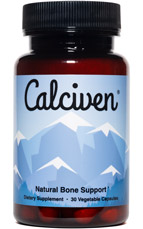
|
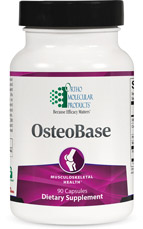
|
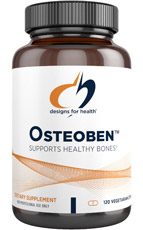
|
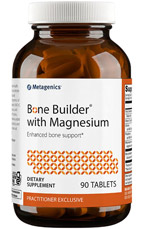
|
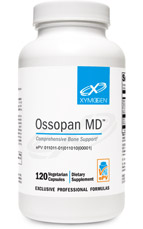
|
|
|---|---|---|---|---|---|
| Key Ingredients | |||||
| Calcium | Yes | Yes | Yes | Yes | Yes |
| Magnesium | Yes | Yes | Yes | Yes | Yes |
| Boron | Yes | No | No | No | No |
| Vitamin D | Yes | Yes | Yes | Yes | Yes |
| Vitamin K | Yes | Yes | Yes | No | No |
| Proof of Efficacy | |||||
| Low Dose, High Efficiency Calcium | Yes | Yes | Yes | No | No |
| Optimal Absorption Factors | Yes | No | No | No | No |
| No Filler Ingredients | Yes | Yes | No | No | Yes |
| Other Considerations | |||||
| No Artificial Additives | Yes | Yes | Yes | Yes | Yes |
| Vegetarian | Yes | No | Yes | No | No |
| Non-GMO | Yes | Yes | Yes | Yes | Yes |
| Gluten-Free | Yes | Yes | Yes | Yes | Yes |
| Made in a GMP-Certified Laboratory | Yes | Yes | Yes | Yes | Yes |
| Made in the USA | Yes | Yes | Yes | Yes | Yes |
Scroll to compare
Below, we break down our rankings and feature detailed reviews of the 5 best bone health products we analyzed, beginning with our top pick.
Pros
- Contains a safe, effective dose of calcium in its most bioavailable form for bone health
- Includes the optimal 2:1 ratio of calcium to magnesium
- Features an ideal combination of absorption factors to ensure transportation of calcium directly into the bones
- Contains all 5 must-have ingredients
- No fillers or artificial additives
- Vegetarian, non-GMO, and gluten-free
- Made in the USA
Cons
- Available online, but not currently sold in retail stores
The Bottom Line
We gave Calciven by Nutreance our #1 ranking because it is the only bone health supplement that meets every one of our strict criteria.
Calciven contains all 5 of the ingredients we consider essential for optimal bone support, including calcium, magnesium, boron, vitamin D, and vitamin K.
Each capsule has 120 mg of dicalcium malate, a safe and effective dose of high efficiency calcium, and 60 mg of dimagnesium malate, a potent and highly bioavailable form of magnesium. Together, these establish an optimal 2:1 ratio between calcium and magnesium, promoting rapid absorption and integration of calcium into the body's natural bone renewal cycle.
Including magnesium, Calciven features 4 absorption factors to help transport calcium directly into the bones and minimize risk of accumulation in soft tissue. 50 mcg of vitamin D3 and 100 mcg of vitamin K2 are contained in each capsule, supplying optimal doses of both vitamins in their most bioavailable forms. In addition, Calciven was the only one of our top-rated products with boron, recognizing its role in maintaining and enhancing bone mineral content.
It is available on Amazon.com, but we found significantly better discounts on Nutreance's website. The company also offers other products for age-related issues, including supplements for joint support and cognitive enhancement.
Overall, Calciven is our top pick for bone health in 2026.
Click here to visit the product website.
* Results may vary and do not necessarily reflect typical results of using this product. Please visit product website for more information.
Pros
- Contains 4 out of 5 must-have ingredients
- No fillers or artificial additives
- Non-GMO and gluten-free
- Made in the USA
Cons
- Does not contain boron
- Does not contain sufficient doses of vitamin D or vitamin K for optimal calcium absorption
- Provides calcium in a 1:1 ratio with magnesium, which can increase cardiovascular risk
- Not vegetarian
The Bottom Line
OsteoBase by Ortho Molecular Products provides effective bone support with a strong cast of ingredients that includes 4 of the primary components that we look for in a quality bone supplement: a low dose of high efficiency calcium, magnesium, vitamin D, and vitamin K.
The product contains calcium from 2 sources: dicalcium malate and microcrystalline hydroxyapatite (MCH). Derived from bovine bones, MCH provides both calcium and phosphorus, which are key building blocks for healthy bones. However, most modern diets contain phosphorus levels in excess of what is required for healthy bones. This inclusion of MCH as a secondary source of calcium is unnecessary, as it does little to improve its efficacy and renders the formula non-vegetarian.
While each capsule provides a safe dose of 100 mg of calcium, it also provides 100 mg of magnesium, establishing a calcium to magnesium ratio of 1:1. Although not unsafe in the short term, studies indicate that long-term consumption of calcium and magnesium below the recommended ratio of 2:1 can increase cardiovascular risk.
The supplement does not contain boron, which helps prevent calcium from leaching out of the bones as we age. In addition, despite the inclusion of both vitamins D and K, they are not provided in high enough doses to ensure optimal calcium absorption.
Click here to visit the product website.
* Results may vary and do not necessarily reflect typical results of using this product. Please visit product website for more information.
3. Osteoben by Designs for Health

Pros
- Contains 4 out of 5 must-have ingredients
- No artificial additives
- Vegetarian, non-GMO, and gluten-free
- Made in the USA
Cons
- Does not contain boron
- Does not contain a high enough dose of vitamin D to promote proper absorption of calcium
- Provides a 1:1 calcium to magnesium ratio, which can affect cardiovascular risk
- Contains an estrogen-like plant extract, which can cause adverse hormonal effects in men
The Bottom Line
Osteoben by Designs for Health includes 4 core ingredients for bone health: calcium, magnesium, vitamin D, and vitamin K. The formula maintains its vegetarian status by featuring calcium in the form of dicalcium malate. This easily absorbed mineral compound is included in a safe, low dose. However, it is provided in a 1:1 ratio with magnesium, which deviates significantly from the ratio associated with the best long-term cardiovascular health profile.
Although Osteoben's vitamin D content is lacking, each capsule includes a total of 120 mcg of vitamin K to help support the body's natural bone remodeling cycle, more than any other supplement we reviewed. Unfortunately, more than 80% is in the form of vitamin K1, which has been shown to be less effective than vitamin K2 for bone health.
The formula excludes boron in favor of zinc, an essential mineral that helps ensure transportation of calcium directly to the bones. Yet, most modern diets already provide sufficient levels of zinc, while they typically lack enough boron to strengthen bones.
Finally, the product features genistein, a phytoestrogen derived from the sophora flower, to help maintain bone mineral density. Though there is limited clinical evidence to support genistein as a bone-strengthening ingredient, several studies have shown that it can produce estrogen-like effects when consumed by men. As such, men should exercise caution when taking Osteoben.
Click here to visit the product website.
* Results may vary and do not necessarily reflect typical results of using this product. Please visit product website for more information.
Pros
- Contains 3 out of 5 must-have ingredients
- No artificial additives
- Non-GMO and gluten-free
- Made in the USA
Cons
- Does not contain boron or vitamin K
- Does not contain a high enough dose of vitamin D to promote proper absorption of calcium
- Contains some ingredients with questionable efficacy
- Not vegetarian
The Bottom Line
Bone Builder with Magnesium is part of a series of "Bone Builder" products by Metagenics. Of the versions they offer, we feel this is their best formulation for comprehensive bone support, as it features 3 of our 5 must-have ingredients for stronger, healthier bones.
The supplement has a ratio of calcium to magnesium that is nearly 2:1, the perfect balance of bone-strengthening calcium to one of its most essential absorption factors. Its calcium is sourced from microcrystalline hydroxyapatite (MCH), derived from bovine bones, and dicalcium phosphate, which also provides a large dose of phosphorus. This is not ideal, as the European Food Safety Authority advised in 2019 that dietary consumption of the mineral began to exceed safe levels.
At just over 200 mg, the dose of calcium in each capsule is significantly above average, and the directions on the product label recommend taking 3 capsules per day. This level of intake may be too high for some individuals and risk calcium accumulation in the kidneys or arteries, especially considering the product's relative lack of absorption factors. Its vitamin D content is not sufficient to ensure maximum calcium absorption, while vitamin K and boron are not included in the formula.
Metagenics rounds out the formula with ipriflavone, a synthetic isoflavone which has been evaluated for its effects on the bone renewal cycle. Studies of its efficacy have been inconclusive so far.
Click here to visit the product website.
* Results may vary and do not necessarily reflect typical results of using this product. Please visit product website for more information.
5. Ossopan MD by Xymogen
Pros
- Contains 3 out of 5 must-have ingredients
- No artificial additives
- Non-GMO and gluten-free
- Made in the USA
Cons
- Does not contain boron or vitamin K
- Contains significantly less than the amount of vitamin D required for proper calcium absorption
- Provides a 4:1 calcium to magnesium ratio, which can affect cardiovascular risk
- Not vegetarian
The Bottom Line
Ossopan MD by Xymogen sources its calcium from both dicalcium malate, the form of the mineral best absorbed by the human body, and microcrystalline hydroxyapatite (MCH), a phosphorus-rich extract derived from raw animal bones. This combination provides 200 mg of calcium per capsule and is backed by a supporting cast of magnesium and vitamin D for efficient transportation into the bones.
Unfortunately, the supplement provides just 50 mg of magnesium per capsule. This establishes a significantly elevated 4:1 ratio between calcium and magnesium, straying from the ideal 2:1 ratio which is associated with the least likelihood of calcium accumulation in the soft tissues of the body. Moreover, only 1.25 mcg of vitamin D3 is included in each capsule, an amount small enough to be considered negligible by some standards. By comparison, the National Academy of Medicine and National Institutes of Health recommend daily intake of at least 15 mcg every day.
Considering the absence of vitamin K and boron from the formulation, some caution is warranted based on the product's high dose of calcium and its relative lack of absorption factors that are essential for efficient storage of calcium in the bones. If more than 2 capsules are taken daily, as the directions on the label suggest, long-term use may pose an elevated risk of kidney stones or arterial plaque.
Click here to visit the product website.
* Results may vary and do not necessarily reflect typical results of using this product. Please visit product website for more information.

